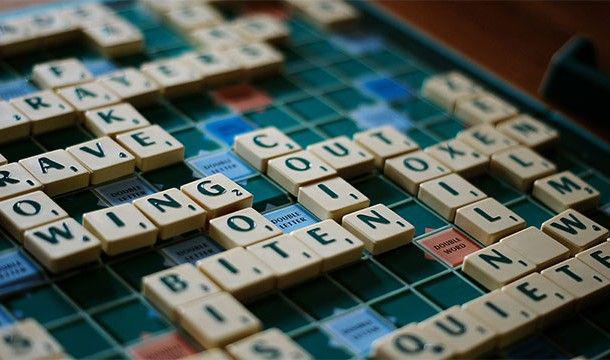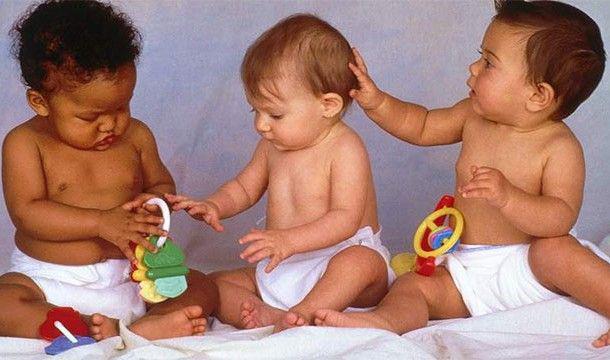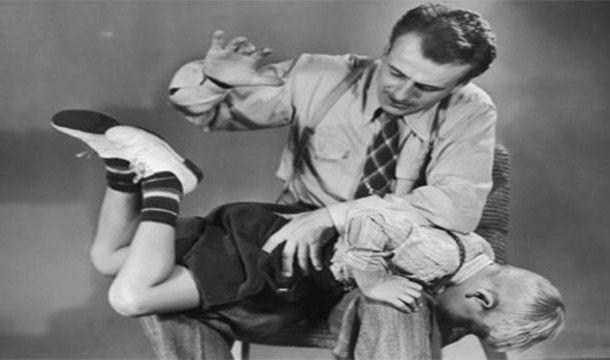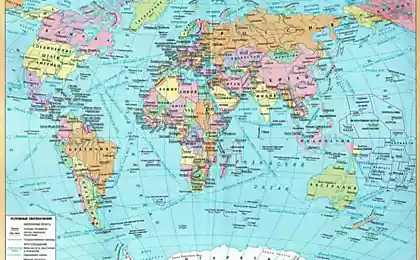846
Most countries have banned around the world (22 photos)
From plastic bags and ketchup up reincarnation and time travel - the governments of different countries do not get tired to reinvent their nations more and less and less consistent with common sense restrictions:
China Game Consoles

In 2000, China entered into force a ban on gaming consoles. In this way, the government is trying to protect young people from the harmful effects of video games and get to work or study.
Iran: "Western" hairstyles

In Iran it is forbidden to wear "Mullet" (cropped hair in the front and sides, long in the back), "ponytail" and "Mohicans" (punk hairstyle where the hair is made of thorns).
Saudi Arabia: Valentine's Day

The ban applies to all items in red, which should not have been sold in stores. The introduction of the law has led to the flourishing black market.
Greece: Video Games

Initially, the ban extended to electronic gaming machines, but the law was so confusing that police have arrested one person, just play video games at an internet cafe. After pressure from the EU law was eventually changed.
China: Reincarnation without prior approval

As much as it may sound ridiculous, but with the help of such a law, Chinese authorities have tried to control the Tibetan Buddhists.
Romania: Scrabble

In the 80s, Romanian President Nicolae Ceausescu banned the board game "Scrabble". He called it "too intellectual" and "anti-government evil».
Manila: Claire Danes

After Claire Danes responded to Manila as eerie, strange and stinking cockroaches city, all the films with the actress were destroyed, and she herself banned from coming to the capital of the Philippines.
Denmark: The majority of children's names

In Denmark, there is a list of 24 thousand government-approved names. If parents wish to give their child a name not included in this list, then they will have to get permission.
China: Avatar in 2D

Apparently, the Chinese government does not like the idea that people support the indigenous people in their struggle against the imperialist forces. Therefore, the authorities allowed only to show the film in 3D, given that China is almost no 3D movie theaters.
National Security Agency: Furby

Although it was not a nationwide ban, in fact, it was announced by the US government. In 1999, the NSA suspected Furby toy is that it can record sensitive information.
Malaysia: Yellow clothes

In 2011, the Malaysian government imposed a ban on the wearing of yellow, ranging from T-shirts and hats and ending with laces and bracelets. And all because yellow was the color of a certain group of opposition activists.
China Jasmine

After the Jasmine Revolution in Tunisia has inspired Chinese protesters, the government cracked down not only unhappy, but also banned the flower itself.
Cuba Mobile

During the reign of Fidel Castro have mobile phones could only senior government officials.
Singapore: Chewing gum

Since 1992, the import and sale of chewing gum are considered illegal because the government ordered him keep city streets and public places clean.
Iran: Mannequins

Not all the mannequins in Iran is illegal, but only those that do not have a hijab.
Bangladesh: Plastic bags

The ban on plastic bags also spoke French, Tanzania and Mexico.
Saudi Arabia: Driving woman

Despite the fact that there is no law restricting the right of women to drive in Saudi Arabia, no driver's license they have not yet issued.
France: Ketchup

The ban on ketchup touched only school and student canteens in connection with the promotion of healthy food and traditional French cuisine. Ketchup allowed to file only with fries.
Bolivia: McDonald

Formally, Bolivia McDonald was not forbidden, but in 14 years of fast-food restaurants, they did not become popular among the population because of its conservatism in food preferences. Today, Bolivia is the only Latin American country where there is no McDonald's.
Sweden: Spanking

Teachers and parents are not allowed to spank their children in Sweden.
Canada: Baby walkers

Once in 2004, scientists have proved that impede the development of motor skills walkers children, they were banned. Today, Canadian kids are learning to walk on the old-fashioned way.
China: Time travel

The Central Bureau of China on Film, Radio and Television stated that "it is not necessary to promote the films and TV series about time travel, because they reflect historical facts wrong."
China Game Consoles

In 2000, China entered into force a ban on gaming consoles. In this way, the government is trying to protect young people from the harmful effects of video games and get to work or study.
Iran: "Western" hairstyles

In Iran it is forbidden to wear "Mullet" (cropped hair in the front and sides, long in the back), "ponytail" and "Mohicans" (punk hairstyle where the hair is made of thorns).
Saudi Arabia: Valentine's Day

The ban applies to all items in red, which should not have been sold in stores. The introduction of the law has led to the flourishing black market.
Greece: Video Games

Initially, the ban extended to electronic gaming machines, but the law was so confusing that police have arrested one person, just play video games at an internet cafe. After pressure from the EU law was eventually changed.
China: Reincarnation without prior approval

As much as it may sound ridiculous, but with the help of such a law, Chinese authorities have tried to control the Tibetan Buddhists.
Romania: Scrabble

In the 80s, Romanian President Nicolae Ceausescu banned the board game "Scrabble". He called it "too intellectual" and "anti-government evil».
Manila: Claire Danes

After Claire Danes responded to Manila as eerie, strange and stinking cockroaches city, all the films with the actress were destroyed, and she herself banned from coming to the capital of the Philippines.
Denmark: The majority of children's names

In Denmark, there is a list of 24 thousand government-approved names. If parents wish to give their child a name not included in this list, then they will have to get permission.
China: Avatar in 2D

Apparently, the Chinese government does not like the idea that people support the indigenous people in their struggle against the imperialist forces. Therefore, the authorities allowed only to show the film in 3D, given that China is almost no 3D movie theaters.
National Security Agency: Furby

Although it was not a nationwide ban, in fact, it was announced by the US government. In 1999, the NSA suspected Furby toy is that it can record sensitive information.
Malaysia: Yellow clothes

In 2011, the Malaysian government imposed a ban on the wearing of yellow, ranging from T-shirts and hats and ending with laces and bracelets. And all because yellow was the color of a certain group of opposition activists.
China Jasmine

After the Jasmine Revolution in Tunisia has inspired Chinese protesters, the government cracked down not only unhappy, but also banned the flower itself.
Cuba Mobile

During the reign of Fidel Castro have mobile phones could only senior government officials.
Singapore: Chewing gum

Since 1992, the import and sale of chewing gum are considered illegal because the government ordered him keep city streets and public places clean.
Iran: Mannequins

Not all the mannequins in Iran is illegal, but only those that do not have a hijab.
Bangladesh: Plastic bags

The ban on plastic bags also spoke French, Tanzania and Mexico.
Saudi Arabia: Driving woman

Despite the fact that there is no law restricting the right of women to drive in Saudi Arabia, no driver's license they have not yet issued.
France: Ketchup

The ban on ketchup touched only school and student canteens in connection with the promotion of healthy food and traditional French cuisine. Ketchup allowed to file only with fries.
Bolivia: McDonald

Formally, Bolivia McDonald was not forbidden, but in 14 years of fast-food restaurants, they did not become popular among the population because of its conservatism in food preferences. Today, Bolivia is the only Latin American country where there is no McDonald's.
Sweden: Spanking

Teachers and parents are not allowed to spank their children in Sweden.
Canada: Baby walkers

Once in 2004, scientists have proved that impede the development of motor skills walkers children, they were banned. Today, Canadian kids are learning to walk on the old-fashioned way.
China: Time travel

The Central Bureau of China on Film, Radio and Television stated that "it is not necessary to promote the films and TV series about time travel, because they reflect historical facts wrong."
























